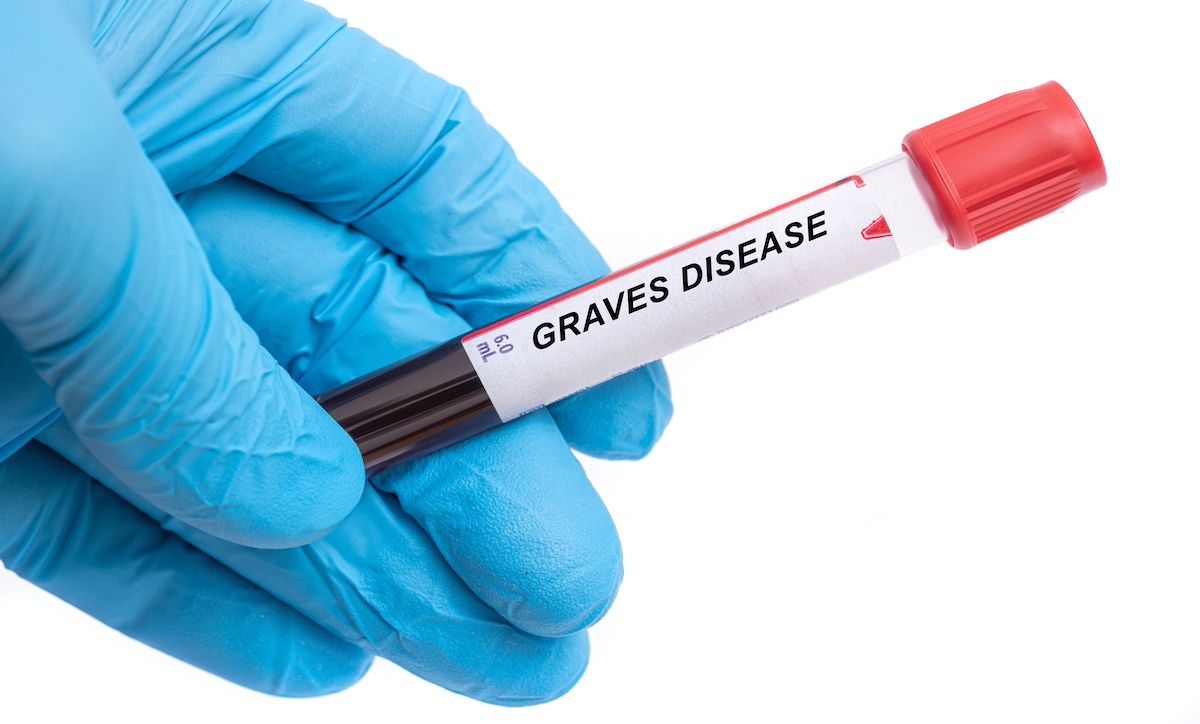- Center on Health Equity and Access
- Clinical
- Health Care Cost
- Health Care Delivery
- Insurance
- Policy
- Technology
- Value-Based Care
Patients With Autoimmune Thyroid Disease at Higher Risk of Myasthenia Gravis
These insights, explain the researchers of the study, complement observational studies, which have previously indicated a causal relationship between the 2 diseases.
Findings from a new analysis show that patients with autoimmune thyroid disease (AITD) are at a higher risk of developing myasthenia gravis (MG).
These insights, explain the researchers of the study, complement observational studies, which have previously indicated a causal relationship between the 2 diseases that share several features, including being antibody mediated. The findings from the Mendelian randomization (MR) analysis, published in Frontiers in Endocrinology, also found a bidirectional causal relationship between MG and Graves disease (GD).
In this analysis, investigators found associations between myasthenia gravis and autoimmune thyroid disease, and between MG and Graves disease | Image Credit: luchschenF - stock.adobe.com

“Some studies have documented the rising incidence of thyroid disorders in MG, with a higher propensity for MG patients to develop Hashimoto’s thyroiditis and other autoimmune thyroid disorders. Patients diagnosed with HT and GD exhibited a heightened subsequent risk of developing MG,” wrote the researchers. “However, there is a lack of consistency among the reported results, with some studies indicating no clinical association between myasthenia symptomatology and thyroid dysfunction, as well as no significant impact on myasthenic symptoms when the endocrine disorders improve.”
Inverse-variance weighted (IVW) analysis showed that both GD (OR, 1.31; 95% CI, 1.08-1.60; P = .005) and autoimmune hypothyroidism (OR, 1.26; 95% CI, 1.08-1.47; P = .002) had a causal relationship with MG.
Across 24 single nucleotide polymorphisms (SNPs) extracted from GD data that were used as instrumental variables, the causal association between GD and MG remained consistent. After additional analysis showed heterogeneity (Q-pval = 1.180e-05), the researchers deployed a random-effects model to assess the MR effect size. The group found no indications of horizontal pleiotropy through the MR Egger intercept nor significant differences in results after outliers were removed.
Six SNPs extracted from MG data were used for a reverse MR analysis, which also showed an association between MG and an increased risk of GD (OR, 1.50; 95% CI, 1.14-1.98; P = 3.57e-3). This finding remained stable even when removed 4 outliers with the MR Presso technique.
The significant association between autoimmune hypothyroidism and MG risk remained consistent with the weighted median method, and no indication of pleiotropy was observed with the MR Egger intercept. Findings from the reverse MR analysis also showed a causal relationship between MG and autoimmune hypothyroidism (OR, 1.29; 95% CI, 1.04-1.59; P = .019), although the results were considered unstable resulting from horizontal pleiotropy.
“The existence of a correlation between AITD and MG remains a subject of debate. This study utilized MR analysis to provide evidence supporting a causal relationship between AITD and MG based on genetic variation,” wrote the researchers. “The findings complement the conclusions drawn from previous observational studies. Our results indicate a higher susceptibility of AITD patients to MG and a greater likelihood of MG patients developing GD. However, the reliability of the results for autoimmune hypothyroidism is considered questionable due to the influence of horizontal pleiotropy.”
Meanwhile, analysis findings showed no significant associations between free thyroxine (FT4), thyroid peroxidase antibodies (TPOAb), and thyroid-stimulating hormone (TSH) with MG risk. IVW analysis showed a causal relationship between MG and TPOAb (OR, 1.84; 95% CI, 1.39-2.42; P = 1.47e-5), and Wald ratio showed an association between MG and elevated TSH (Beta, 0.08; 95% CI, 0.01-0.14; P = 0.011). No correlation was seen with FT4.
Reference
Wang S, Wang K, Chen X, Chen D, Lin S. Autoimmune thyroid disease and myasthenia gravis: a study bidirectional Mendelian randomization. Front Endocrinol. Published online February 9, 2024. doi:10.3389/fendo.2024.1310083
Dr Kathy Zackowski Discusses the Importance of Rehabilitation Research and Trials in MS
April 26th 2024Kathy Zackowski, PhD, National MS Society, expresses the inherent value of quality rehabilitation trials for broadening clinical understandings of multiple sclerosis (MS) and bettering patient outcomes.
Read More
Mental Health Diagnoses, Care Challenges Rise Among US Youth, Report Finds
April 26th 2024While behavioral health care utilization has been rising, the treatment landscape has been worsening. New findings show that 20% of youths did not receive any form of treatment within 3 months of their initial behavioral health diagnosis.
Read More
